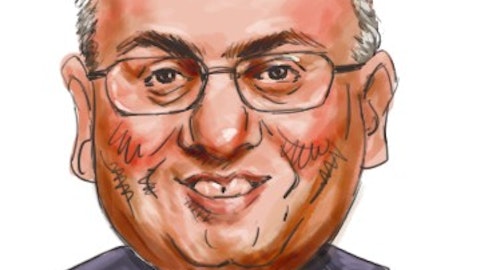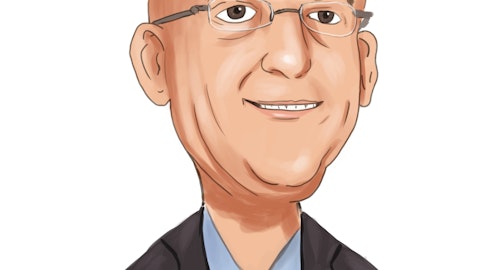Operator: And our next question coming from the line of Brad Canino from Stifel.
Unidentified Analyst: This is Bijan on for Brad Canino. For the AFM24 combination studies, how many patients should we expect to see in the upcoming data? And will there be enough efficacy for us to determine the contribution of parts?
Adi Hoess: Andreas?
Andreas Harstrick: Yes. As we said, the focus for the 2 combination studies will mainly be on safety and the definition of the individual recommended doses that we are using in these combinations. For 102, the combination study with atezolizumab, we have recently opened expansion cohorts. So we will see some patients but again, efficacy data expected more towards the end of the year or early next year. So focus here on recommended Phase II dose, same probably for 103.
Unidentified Analyst: Got you. That’s clear. Okay. And then one on AFM13. What should we learn to expect from the AACR presentation that could be helpful for the NK cell combo study?
Adi Hoess: Again, Andreas?
Andreas Harstrick: You mean the AFM13 monotherapy study that we are discussing in detail. This will be mainly a detailed description of the activity of monotherapy of AFM13 in PTCL, looking at the safety profile, looking at activity in individual subgroups providing further data in terms of follow-up. I think there is not very much to learn for the specific combination study. As you know, the primary target population of the combination study is Hodgkin’s lymphoma, where we intend to generate through the 203 study data set that would be able to support an accelerated approval. Now the data that we show at ASCO will be on PTCL, peripheral T-cell lymphoma, so different tumor type. Here, we also have an exploratory cohort in our 203 study which will provide us further guidance on the next steps with NK cells and AFM13 also in PTCL.
Unidentified Analyst: Andreas, you said ASCO but you meant AACR. So the presentation on AFM13 monotherapy will be at AACR.
Andreas Harstrick: Yes. Sorry. AACR, of course.
Operator: And our next question coming from the line of from H.C. Wainwright.
Unidentified Analyst: I apologize another question on AFM13. This is on the 203 program. Just trying to understand the rationale behind CD13 positive, the exploratory cohort which you’re looking at the CD13 positive relapsed/refractory NHL.
Adi Hoess: Andreas will you? Yes, thank you.
Andreas Harstrick: Yes. So — yes, this study is open for CD30-positive lymphomas as well as the MD Anderson study. It basically has 2 parts. So the larger part and where we are focusing on our registration intent is for patients with Hodgkin lymphoma. I think here, the MD Anderson data has provided clear proof of concept. As Arndt and others have elucidated, we believe that the AB-101 cell has the activity and the type of biology that should enable us to replicate these data with a very high response rate with a good duration of responses. So this is the main part of the study. As we have also shown, we have seen good responses also in non-Hodgkin lymphoma in the MD Anderson study. However, this is only 4 patients so far. So the 203 study has a separate cohort that enrolls peripheral T-cell lymphoma patients, tries to — are always looking for the response rate also in peripheral T-cell lymphoma patients.



